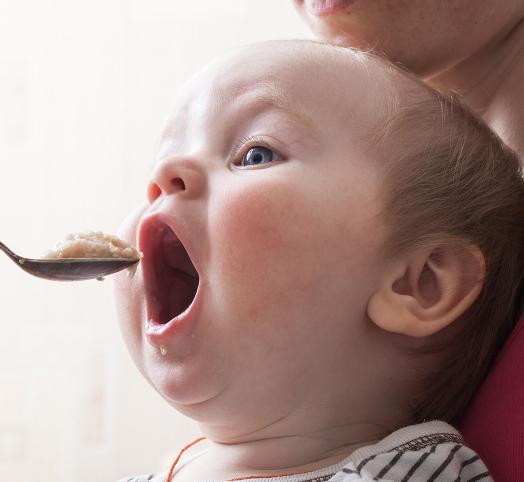Are there particular food requirements in cases of extremely dry skin?
Updated on March 22, 2023
Created on July 24, 2019
Find your nearest point of sale here
Updated on March 22, 2023
Created on July 24, 2019

Written in partnership with Dr. Clarence De BELILOVSKY, dermatologist & member of the Mustela experts' circle.
Extremely dry skin and allergies: what diet and which ingredients suit babies? Extremely dry skin and food allergies are not automatically linked.
If extremely dry skin occurs, in particular, when the dry skin is in contact with allergens, there is not necessarily a link, since food is consumed. However, it can happen: some foods can irritate the skin on contact.
When food is swallowed, contact with the mouth or lips – especially when your baby is learning to eat by himself – could trigger the immune system and generate a flare-up. The real issue is to determine whether extremely dry skin is directly linked to food intolerance or a food-specific allergy – that is to say, whether a carrot allergy, for instance, will lead to a flare-up if your baby eats some carrots.
There are many differing opinions; here’s what we can say for the moment 1 :
- If your baby has extremely dry skin, this means that his immune system responds excessively where allergens are concerned. This could just as well be explained as conjunctivitis, strong hay fever or asthma, which are other possible manifestations in addition and food allergies. According to his sensitivity, the same person can be subject to one or more manifestations without any link between them.
Your child might thus be allergic to carrots but not be affected by extremely dry skin when he makes a feast of them. The reaction to this food will manifest itself differently (vomiting, diarrhea, etc.).
- When extremely dry skin is particularly severe, it may be directly linked to a food allergy. skin reactions and skin redness: be careful with the most highly-allergenic foods If you have any doubts, visit your general physician, who will advise you to consult a dermatologist and/or an allergist, according to the symptoms.
Once you have the results, the doctor in question will decide if an “eviction diet” is necessary to exclude some ingredients in your baby’s food.
The most common allergens are: Peanuts - Milk - Nuts and seeds - Corn - Egg whites - Fish, shellfish, mollusks - Chocolate More important, according to your baby’s age and dietary variety, the physician will tell you how to replace these foods in order to maintain the equivalent nutritional value, so that you can continue to offer your child tasty menus!